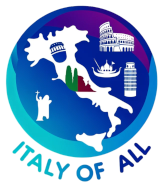The province of Vercelli, located in the Piedmont region of northern Italy, is known for its rich agricultural heritage, particularly in rice cultivation, which dominates its landscape and economy. Vercelli is one of the most important European centers for rice production, surrounded by vast expanses of paddy fields that give the area a distinctive character.
Geographically, Vercelli is situated on the flat plains of the Po Valley, an area characterized by fertile soil ideal for the cultivation of rice. The province also features parts of the Sesia River, which is crucial for the irrigation of its rice paddies. The landscape, while primarily agricultural, also includes areas of natural beauty such as the Lame del Sesia, a regional park that preserves a wetland ecosystem along the river.
Historically, Vercelli is one of the oldest urban sites in northern Italy. Founded well before the Roman times, it became a significant municipium under the Romans. During the Middle Ages, Vercelli was a key religious and cultural center, as evidenced by its remarkable architectural landmarks such as the Basilica of Sant’Andrea. The city was also an important node on the Via Francigena, the ancient pilgrimage route leading from Canterbury to Rome.
Culturally, Vercelli has a strong tradition of art and history, which can be explored through its numerous museums and libraries. The city’s historical and architectural heritage is highlighted in structures like the Vercelli Cathedral and the Torre dell’Angelo. Vercelli also hosts several festivals and events throughout the year, including the September Vercelli Book Fair, an important cultural event for book lovers.
Cuisine in Vercelli is heavily influenced by its status as a rice-producing capital. The local gastronomy features a variety of rice-based dishes, the most famous being “Panissa Vercellese,” a risotto-like dish made with Arborio rice, beans, sausage, and red wine. Another notable dish is “Riso alla Pilota,” typically made with pork and Parmesan cheese, reflecting the simplicity and richness of local ingredients.
Economically, Vercelli’s economy is predominantly agricultural, with rice production being the most significant industry. The rice from Vercelli, known for its high quality, is used not only in Italian cuisine but also exported extensively. Besides agriculture, the province has developed industrial sectors related to food processing and machinery that support and enhance its agricultural output.
Despite challenges such as the need for sustainable water management and adaptation to changing market demands, Vercelli remains committed to maintaining its agricultural heritage while also exploring opportunities for innovation in both farming practices and economic diversification.
Overall, the province of Vercelli offers a unique blend of cultural richness, historical depth, and agricultural dominance. Its ongoing efforts to balance traditional practices with modern demands ensure its continued importance in Italy’s economic landscape and cultural heritage.
Comuni in Vercelli Province:
- Borgosesia
- Borgo Vercelli
- Balocco
- Arborio
- Borgo d’Ale
- Alice Castello
- Asigliano Vercellese
- Albano Vercellese
- Alagna Valsesia
- Alagna Valsesia
- Balmuccia
- Boccioleto
- Bianzè
- CarceriCarcoforo
- Buronzo
- Casanova Elvo
- Campertogno
- Carisio
- Breia
- Casalino
- Cigliano
- Crova
- Cravagliana
- Fobello
- Desana
- Costanzana
- Civiasco
- Cervatto
- Formigliana
- Crescentino
- Fontanetto Po
- Livorno Ferraris
- Lignana
- Gattinara
- Lozzolo
- Massazza
- Lamporo
- Guardabosone
- Olcenengo
- Motta de’ Conti
- Oldenico
- Mollia
- Moncrivello
- Palazzolo Vercellese
- Pezzana
- Saluggia
- Rimella
- Salasco
- Sali Vercellese
- Pila (VC)PimentelPimonte
- Quarona
- Ronsecco
- Quinto Vercellese
- Roasio
- Piode
- Rassa
- Prarolo
- Pertengo
- San Germano Vercellese
- San Giacomo Vercellese
- Santhià
- Stroppiana
- Serravalle Sesia
- Villarboit
- Tricerro
- Vocca
- Vercelli
- Valduggia
- Varallo Sesia
- Tronzano Vercellese
- Trino
- Villata
